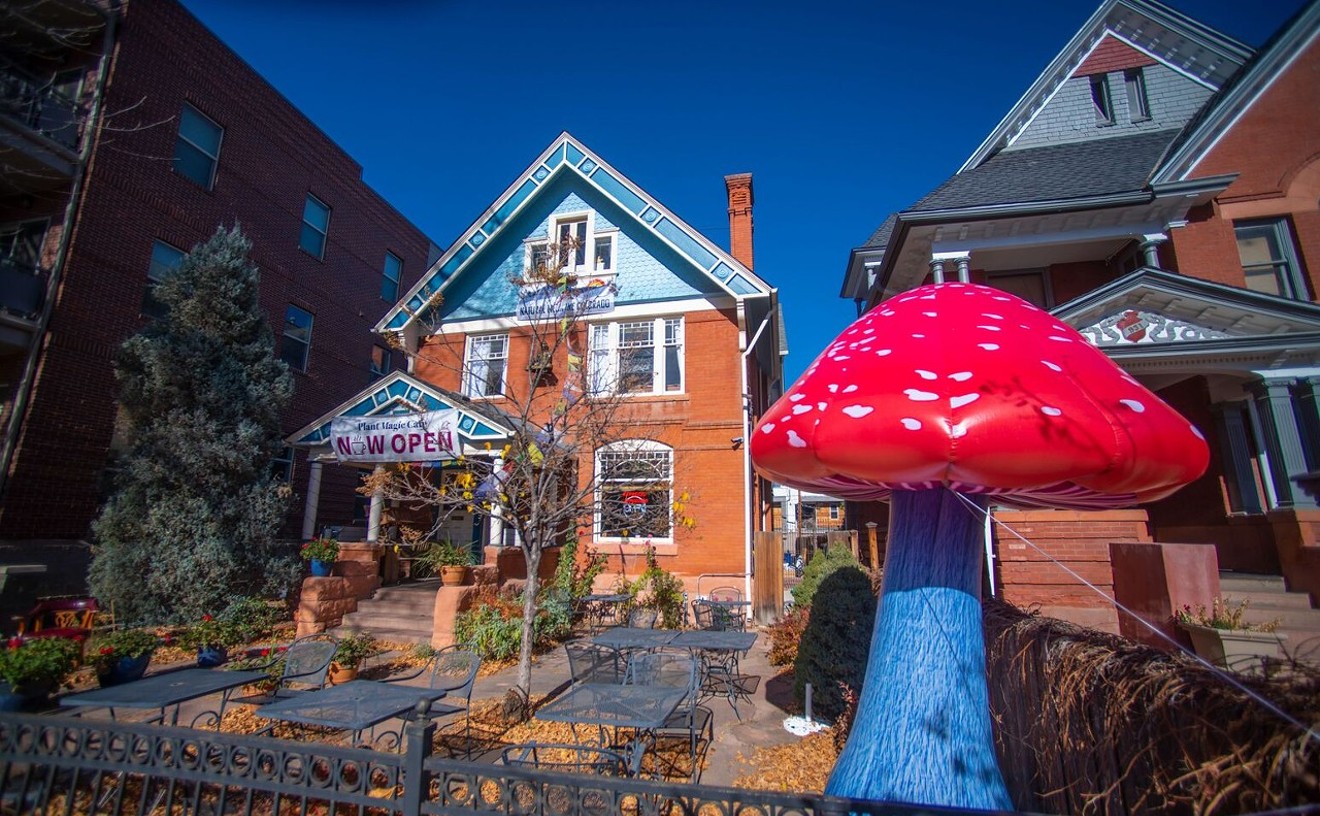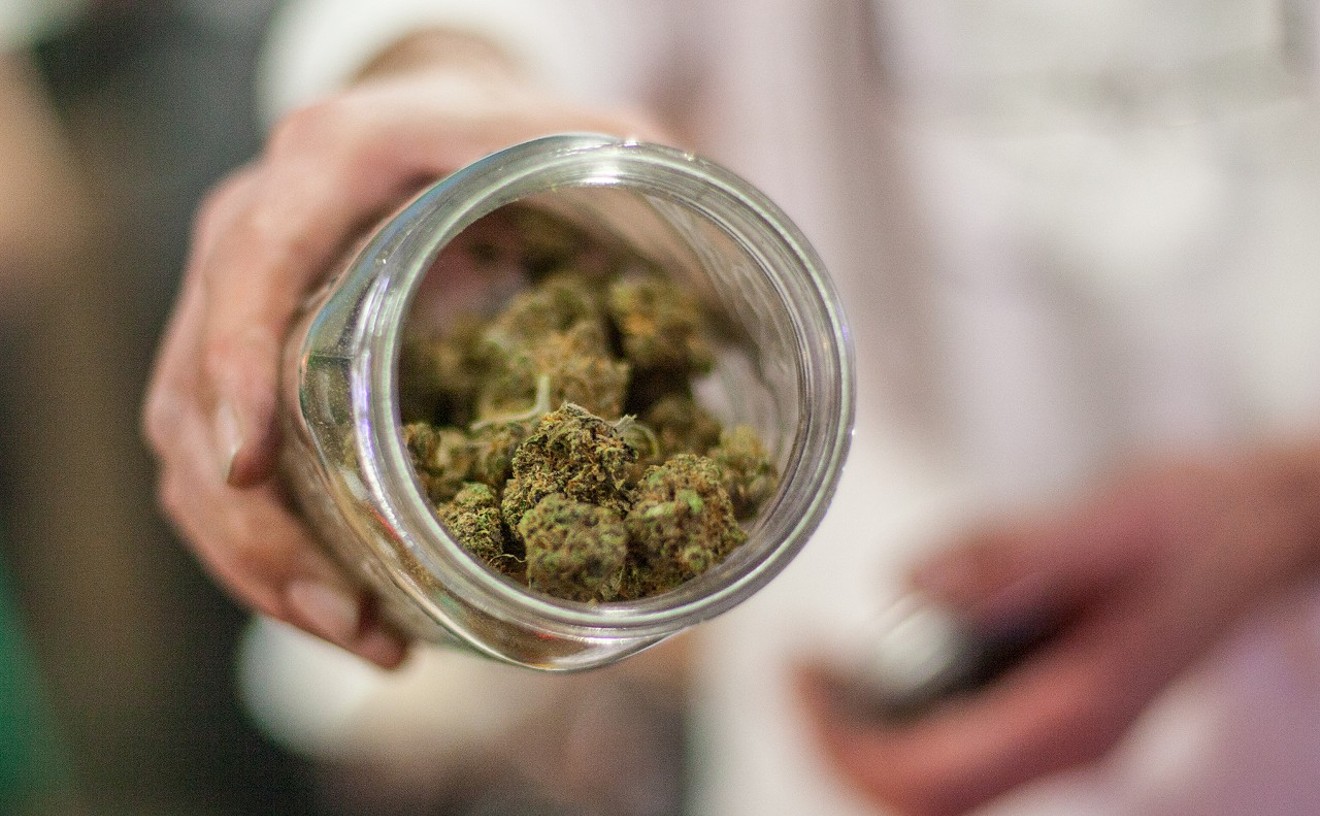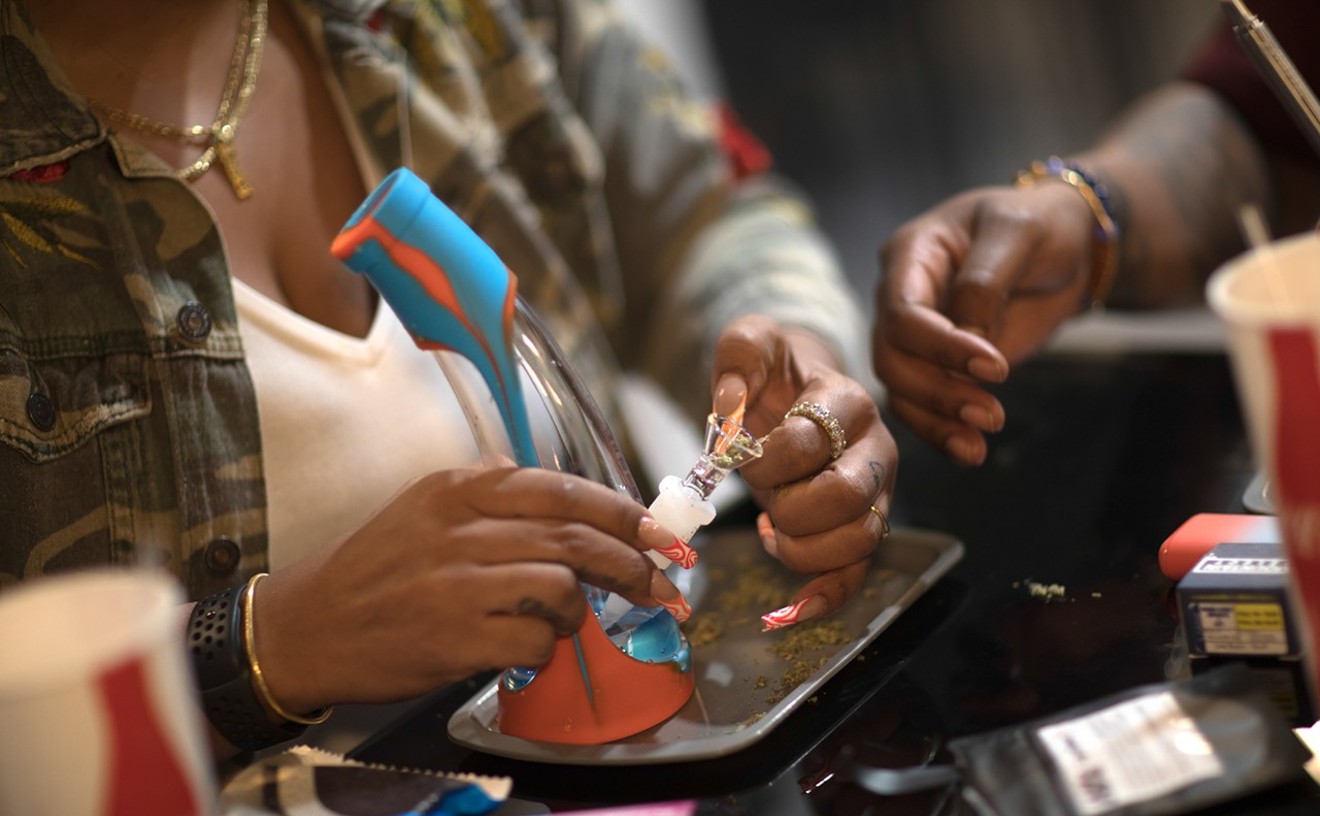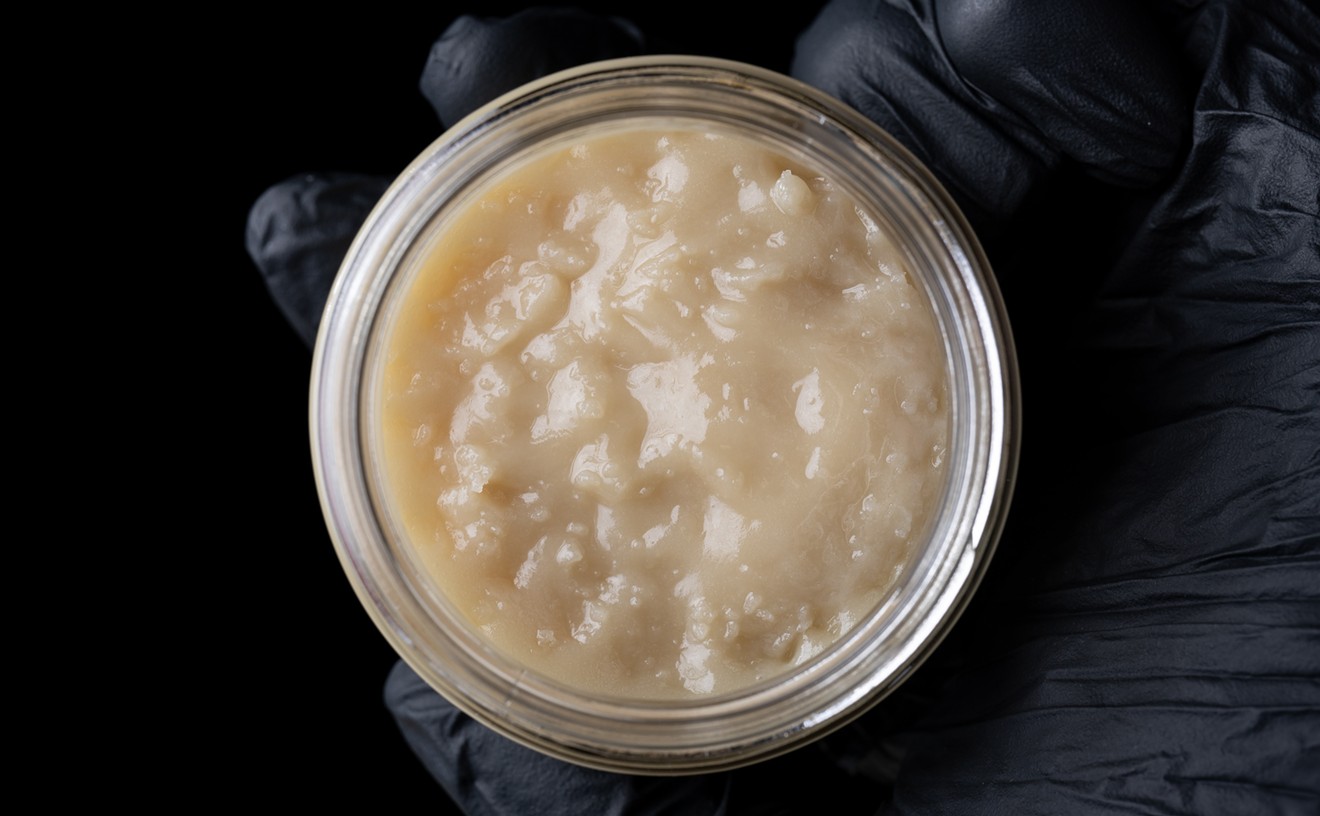An initiative petition proposing an increase in marijuana sales taxes to fund a statewide education enrichment program has gained enough signatures to make the November ballot in Colorado.
The marijuana industry isn't on board with the hike, however, and the educational community hasn't fully bought into it, either.
Supporters of the proposed Learning Enrichment and Academic Progress (LEAP) program submitted over 200,000 signatures today, July 30, at the Colorado Secretary of State's Office; they hope to persuade voters to approve new funding for learning outside of school. The LEAP program would earmark lower- and middle-income families with school-aged kids for an annual stipend of around $1,500 per child that would go to out-of-school learning services, including after-school programs, individual tutoring and specialized after-school learning classes.
Families earning between $25,000 and $50,000 a year would be prioritized as beneficiaries of the program. While the money would be available throughout the year, LEAP would like to see an emphasis on summer education — the lack of which proponents see as contributing to learning and achievement gaps among kids, according to Mike Johnston, former gubernatorial candidate and current CEO of Gary Community Ventures, a nonprofit organization that advocates for low-income children.
"This was one of the easiest signature collections we ever gathered. COVID-19 has certainly made us all aware of how important this is," Johnston says. "And it's not just recovery from COVID, but people's long-term sense that there were educational opportunities being missed."
Public schools and teachers providing out-of-school learning and programs would automatically be eligible for compensation from the stipend money, while institutions like the Boys & Girls Club and YMCA or private services would apply through a board approved by the state Department of Education.
"We know school districts would love to provide summer schools, and kids want it. Teachers would love to provide extra tutoring, but they've been doing it on their own time and out of their own pockets," Johnston adds.
Funding for the program would come from a 5 percent marijuana sales tax increase, as well as the repurposing of a portion of investment revenue derived from leases, rents and royalties paid for state-owned lands. Diverted revenue from state-owned lands is estimated to provide around $60 million for the program; the remaining funds would come from the marijuana sales tax increase, Johnston says.
Colorado currently imposes a 15 percent special tax on recreational marijuana sales, with local governments implementing their own marijuana sales and industry taxes on top of that. If approved, the ballot initiative would raise the state sales tax to 20 percent. Applied to 2020's sales figures, a 5 percent marijuana tax increase would yield just short of an extra $80 million, according to state Department of Revenue data.
Chuck Smith, CEO of marijuana-infused brand owner BellRock and president of marijuana trade group Colorado Leads, says that he doesn't think Colorado's pot industry should bear the weight of more taxes, citing the $120.3 million in education funding garnered from marijuana industry taxes in 2020.
"The cannabis industry is already one of the highest, if not the highest, taxed industries in the state. From 2019 to 2020, more than $300 million in cannabis tax dollars were generated, with a third of that amount going directly to public schools," Smith says in a statement about the LEAP initiative.
The marijuana industry's beef with the ballot initiative isn't just about the tax hike, according to Smith, who has issues with a state-appointed board doling out the LEAP money.
Coats and his organization for minority marijuana business owners, Black Brown and Red Badged (BBRB), suggests that raising taxes would hurt the progress made by social equity marijuana licensing programs currently being rolled out at the state and local levels. The BBRB network and members of the Colorado Education Association, the state's largest teachers' union, have also criticized the stipend program's potential lack of availability for rural students and low-income children without transportation. (The CEA's official stance on the LEAP program remains neutral.)
“Our members are businesses that already face systemic financial barriers in this industry, and now we are being asked to take money out of Black pockets to fund programs that are historically known to devastate Black and Brown communities,” Coats says in a statement. “Let’s just be perfectly clear: This is a regressive tax, which always harms Black and Brown consumers the most. This is going to a voucher program, which always harms Black and Brown communities the most. And it’s targeting the marijuana industry as a magical bottomless piggy bank, which will devastate the Black- and Brown-owned cannabis businesses the most."
Educational providers working in the public-school sector have also come out against the initiative, preferring that any extra funding from marijuana taxes go toward paying off a $572 million debt that the State of Colorado owes its schools.
"There is no foundation in reality in the claim" that LEAP would bypass low-income and minority students, Johnston says. Instead, he argues that LEAP would enable easier access to extra classes, activities and tutoring, including after-school programs.
[
{
"name": "Air - MediumRectangle - Inline Content - Mobile Display Size",
"component": "12017618",
"insertPoint": "2",
"requiredCountToDisplay": "2",
"watchElement": ".fdn-content-body",
"astAdList": [
{
"adType": "rectangle",
"displayTargets": "mobile"
}
]
},{
"name": "Editor Picks",
"component": "17242653",
"insertPoint": "4",
"requiredCountToDisplay": "1",
"watchElement": ".fdn-content-body",
"astAdList": [
{
"adType": "rectangle",
"displayTargets": "desktop|tablet"
},{
"adType": "rectangle",
"displayTargets": "desktop|tablet|mobile"
}
]
},{
"name": "Inline Links",
"component": "18838239",
"insertPoint": "8th",
"startingPoint": 8,
"requiredCountToDisplay": "7",
"maxInsertions": 25
},{
"name": "Air - MediumRectangle - Combo - Inline Content",
"component": "17261320",
"insertPoint": "8th",
"startingPoint": 8,
"requiredCountToDisplay": "7",
"maxInsertions": 25,
"watchElement": ".fdn-content-body",
"astAdList": [
{
"adType": "rectangle",
"displayTargets": "desktop|tablet"
},{
"adType": "rectangle",
"displayTargets": "desktop|tablet|mobile"
}
]
},{
"name": "Inline Links",
"component": "18838239",
"insertPoint": "8th",
"startingPoint": 12,
"requiredCountToDisplay": "11",
"maxInsertions": 25
},{
"name": "Air - Leaderboard Tower - Combo - Inline Content",
"component": "17261321",
"insertPoint": "8th",
"startingPoint": 12,
"requiredCountToDisplay": "11",
"maxInsertions": 25,
"watchElement": ".fdn-content-body",
"astAdList": [
{
"adType": "leaderboardInlineContent",
"displayTargets": "desktop|tablet"
},{
"adType": "tower",
"displayTargets": "mobile"
}
]
}
]












